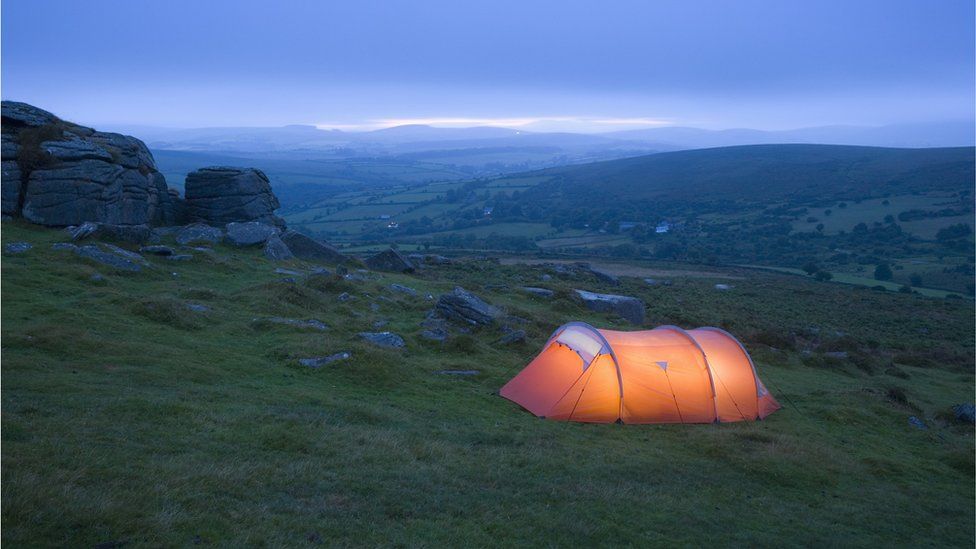ARTICLE AD BOX
 Image source, Getty Images
Image source, Getty Images
Dartmoor National Park says it will consider whether to proceed with an appeal later this month
Dartmoor National Park Authority (DNPA) has said it has been given the go-ahead to appeal a ruling which prohibits wild camping.
It follows a High Court decision in January that said campers would need landowners' permission.
Alexander and Diana Darwall, who brought the case, said the ruling was "no threat to true wild camping".
But the DNPA said it was "pleased" to be granted leave to appeal and would now decide whether to proceed.
It would be discussed at a meeting of its members on 14 April, it said.
Protesters walked to Stall Moor to argue for the right to wild camp
A statement added: "Notwithstanding the ongoing legal proceedings, the authority remains committed to working in partnership with landowners and others to ensure a permissive approach to backpack camping is successful."
It said its vision was to "provide opportunities for all parts of society to enjoy Dartmoor National Park".
The national park, designated in 1951, covers a 368-square mile area that features "commons", which are areas of unenclosed privately-owned moorland where locals can put livestock.
DNPA had argued at the High Court that wild camping was a local custom and the couple's claim was an "attack" on a "long-established practice of great importance".
But Mr and Mrs Darwall, who keep cattle on their 3,450-acre estate, claimed some campers caused problems to livestock and the environment.
A protest march in January stretched for nearly a mile as people chanted for the right to access the moor
Their argument secured a finding from a judge that a 1985 law that regulates access to moorlands does not provide a right to wild camp.
Before this judgement there was an assumed right that people could camp without landowners' permission.
Campers are now restricted to specific areas, marked on an interactive map published on the park authority's website.
Sir Julian Flaux said his ruling would mean that "DNPA and all walkers and riders on the commons know where they stand and what rights they have".
After the ruling, thousands of protesters gathered on Dartmoor calling for it to be overturned.
Campaign group Right to Roam said campers had lost 18% of available land as a result and walking charity, the Ramblers, said the ruling was "a huge step backward for the right of everyone to access nature".
Follow BBC News South West on Twitter, Facebook and Instagram. Send your story ideas to spotlight@bbc.co.uk.

 1 year ago
38
1 year ago
38








 English (US) ·
English (US) ·